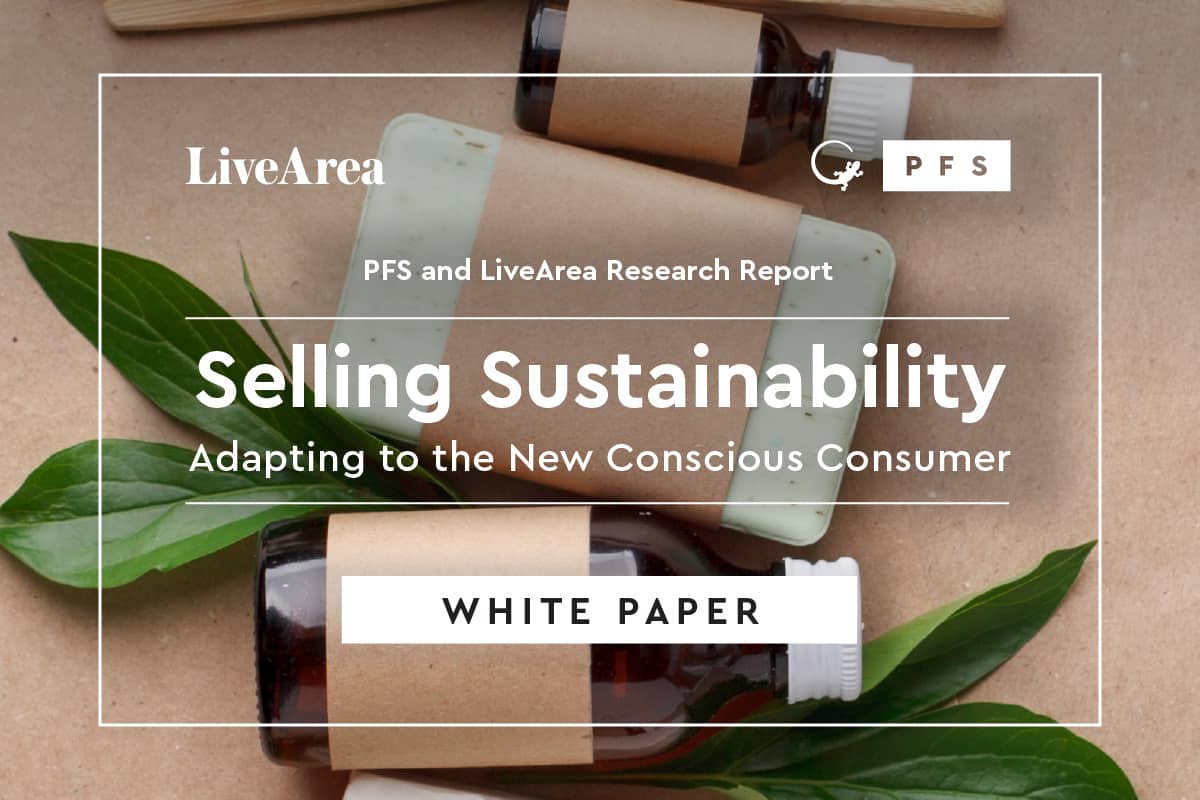COVID-19 and eCommerce
2020 has been a year of great change for consumers and retailers alike. Buying habits have been hugely affected. The closure of physical stores has pushed more shoppers online and has put great strain on retailers to quickly scale eCommerce operations to keep up with demand and retain loyal customers.
Research: The conscious consumer
PFS and LiveArea commissioned research agency, Arlington Research, to survey 2,500 consumers about their current shopping habits, environmental and ethical expectations from brands, and how their buying behaviour has changed during the Coronavirus pandemic.
Nationally representative interviews were carried out with consumers aged 18+ with nationally representative quotas set on gender, age and region at a country-wide level. Respondents came from the UK (1,500 respondents), Republic of Ireland (500 respondents) and France (500 respondents). Fieldwork took place between 28th May and 4th June, 2020.
The report highlights how the COVID-19 pandemic has increased consumer awareness of the environmental impact their online shopping habits have and how they are responding.
Supporting sustainability: We gain insight on how consumers are supporting sustainability measures in the wake of COVID-19 through their shopping choices and the expectations they have for the brands and retailers they shop with.
- Key finding: Around three-quarters (73%) of consumers expect the brands they shop with online to use recyclable packaging. The same number expect packaging to be minimised (74%).
Over-purchasing: We explore how many consumers are still over-purchasing goods, at odds with a sustainable outlook. Still, our findings suggest that the pandemic has actually made consumers think twice before making a purchase for a number of reasons, including the environmental impact of sourcing goods and delivering them.
- Key finding: In light of the pandemic, over a third (37%) of shoppers claim to have stopped over-purchasing items.
Returns: We discover there is a lack of awareness among consumers about what happens to items they decide to return. We look at how a better understanding of the returns process and the waste generated from returns might change consumer behaviour.
- Key finding: Our research suggests that 71% of consumers would change their online shopping habits if they knew that returned items would go to landfill or be destroyed.
Maintaining change: We learn that the changes COVID-19 has brought about across consumer behaviour and retail practices are likely to become part of our new normal. This is in-line with findings from PFS’ previous consumer survey conducted in the UK at the start of lockdown.
- Key finding: Almost three-quarters (72%) of consumers plan to continue with the changes they have made to their shopping habits during the pandemic. For 27%, this means not over-purchasing items; 23% will continue to buy locally sourced or manufactured products.
Download the whitepaper for further insight.
PFS’ view
Consumers are still cost conscious but feel a growing responsibility to care for the environment. Our research indicates that consumers are willing to commit to the environment, ethical sourcing and more mindful commerce practices with their wallets. However, they are relying on retailers and brands to help them do their part while remaining affordable. The challenge for retailers is to meet this growing consumer expectation while protecting their bottom line.
There are many benefits retailers can gain through corporate social responsibility (CSR) initiatives that go beyond their central goal of caring for the environment. By getting products closer to the customer through alternative fulfilment methods such as pop-up DCs or micro-fulfilment centres, brands can provide an improved customer experience while reducing carbon emissions. Likewise, PFS’ RetailConnect store fulfilment solution enables BOPIS and ship-from-store functionality at your brick-and-mortar locations, empowering brands to provide a more convenient customer experience that accomplishes their goal to use sustainable shopping methods, while the brand is able to compete with major marketplaces offering fast delivery options.
As you implement and expand your CSR initiatives, keep an optimistic mindset and look for ways these measures can help make a difference for the environment as well as your bottom line.
Christophe Pecoraro, Managing Director, PFS Europe







